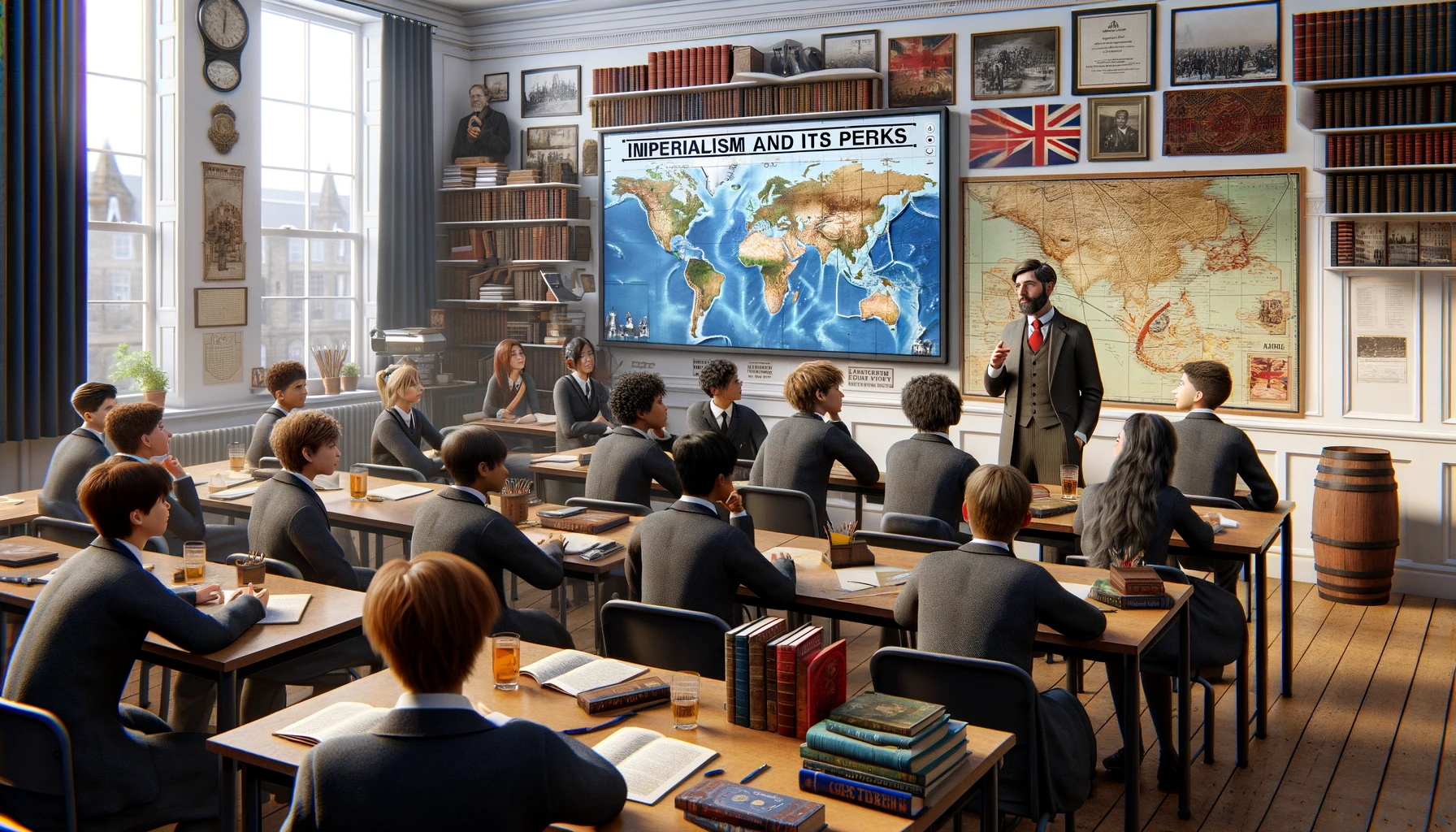In an audacious move that blurs the lines between education and satire, British history classes are set to include a new module titled “Imperialism and Its Perks,” according to sources that can only be described as dubiously fictitious. This bold curriculum update aims to shed light on the “brighter side” of the British Empire, presenting colonialism not as a complex and often brutal chapter in history, but as a series of adventurous exploits and mutual exchanges. Critics, however, are calling for a swift and stern reality check.
“This is an innovative approach to history that focuses on the positive aspects of the British Empire, such as the spread of the English language, the introduction of railways, and the global tea obsession,” explained a fictional spokesperson for the Department of Education, Lord Benedict Fabricate. “We believe it’s time our students learn about the perks of imperialism alongside its other… aspects.”
The new module reportedly includes lessons on the architectural wonders built under British supervision, the economic “benefits” of being part of a vast empire, and the cultural exchanges that occurred during this period. Educational materials are said to feature titles such as “The Sun Never Sets on British Benevolence” and “High Tea: The Beverage that Built an Empire.”
Critics have lambasted the move as an attempt to whitewash the more contentious and violent parts of the British Empire’s history, arguing that it dangerously simplifies a period marked by exploitation, oppression, and conflict. “This curriculum reads like satire,” remarked Professor Ida Critique, a historian known for her work on colonial legacies. “It’s as if they’ve confused the British Empire with a theme park, complete with cotton candy and merry-go-rounds. Next, they’ll be saying the Titanic sank because it was too buoyant with British pride.”
In response to the outcry, satirical student groups have begun proposing their own “modules,” including “Tea: The Drink that Masked a Thousand Ills” and “Railways: Chugging Along on the Backs of the Colonized.” These mock proposals aim to highlight the absurdity of glossing over the darker aspects of imperialism in educational settings.
The satirical narrative of “Imperialism and Its Perks” not only serves as a biting commentary on attempts to sanitize history but also underscores the importance of critical engagement with the past. By poking fun at the notion of presenting imperialism in a predominantly positive light, the story invites readers to reflect on the complexities of historical narratives and the ways in which they are taught.
As debates around the module continue to swirl, both in the realms of satire and serious discourse, the conversation sheds light on the broader issue of historical revisionism and the responsibility of educators to provide a balanced and nuanced understanding of the past. In the end, the fictitious proposal for “Imperialism and Its Perks” serves as a stark reminder that history, much like tea, is best served with a dose of reality.
